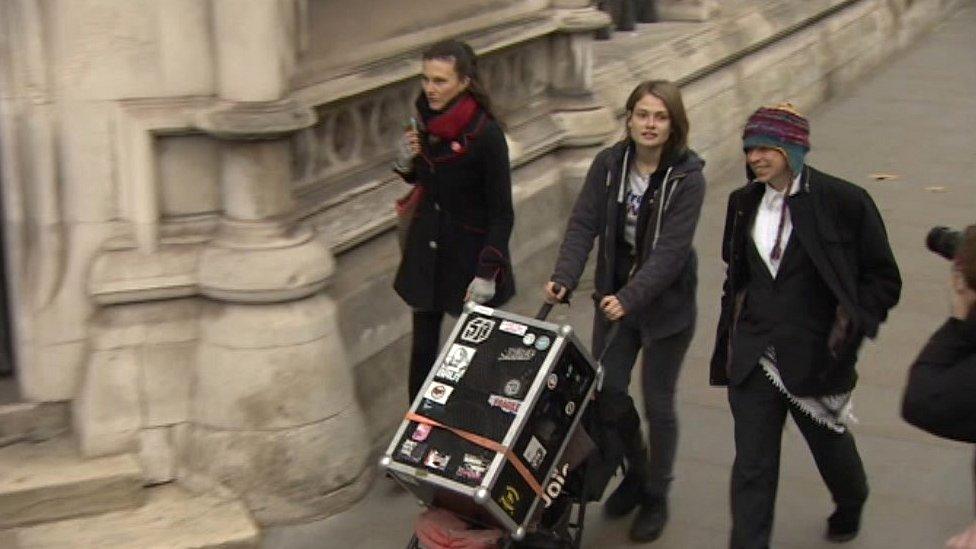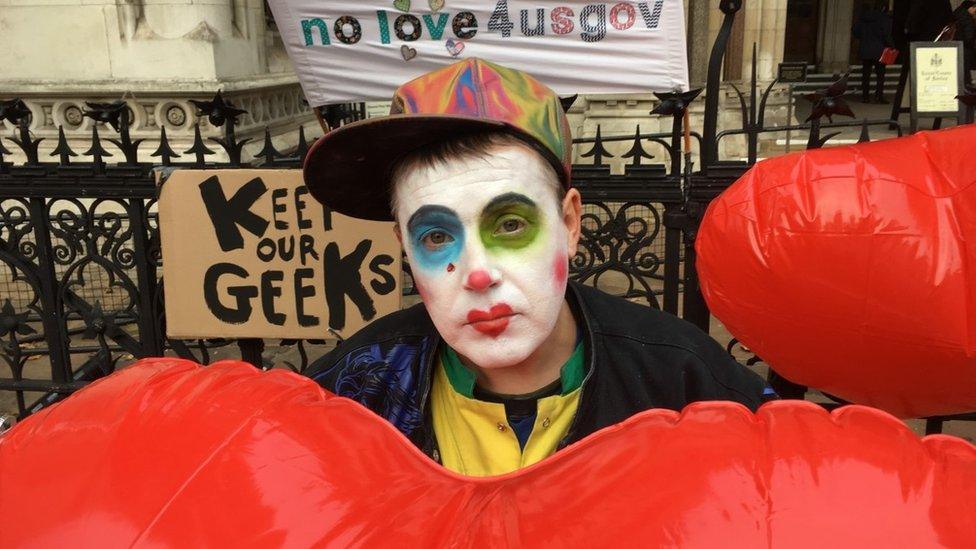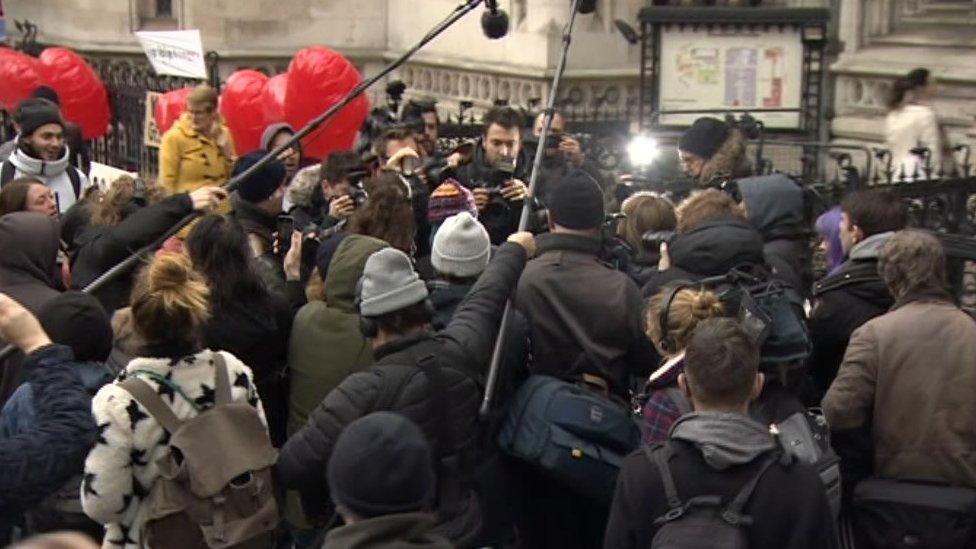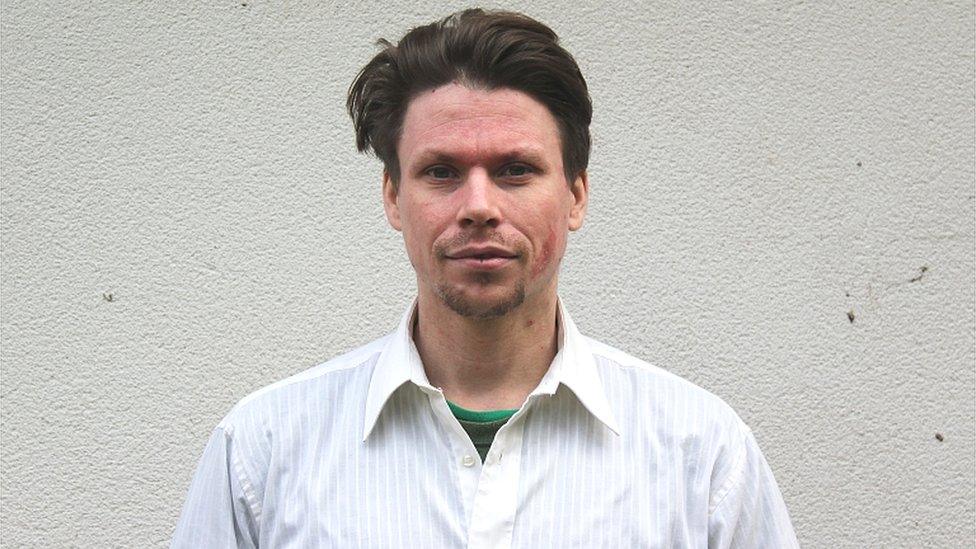Hacking suspect Lauri Love appeals against US extradition
- Published

Lauri Love is appealing his extradition to the US at the Royal Courts of Justice
The extradition of an alleged computer hacker to the US would not be in the "interests of justice", High Court judges have been told.
Lauri Love, 32, from Stradishall, Suffolk, is suspected of hacking into FBI, US Central Bank and Nasa systems.
Edward Fitzgerald QC told the court there were "overwhelming reasons of justice and humanity" why any trial should take place in the UK.
The case is before Lord Chief Justice Lord Burnett and Mr Justice Ouseley.

Lauri Love wants to answer US charges against him in the UK
In September 2016, District Judge Nina Tempia ruled at Westminster Magistrates' Court that Mr Love could be extradited.
It is argued on Mr Love's behalf that she "misdirected herself and erred in law in her conclusions".
Mr Fitzgerald said there was a "compelling" need for Mr Love, who has Asperger's syndrome, to stay in this country with the care and support of his family.
He said there was a "high risk" of suicide if Mr Love is sent to the US.

Lauri Love's supporters protested outside the Royal Courts of Justice
Mr Fitzgerald submitted that the "proper place for him to be tried, if he is to be tried, is in the UK and not in the US".
He told the court: "The very fact that he would be taken away from his family, his home and the support that he desperately needs here is a disproportionate response to his alleged offending behaviour, because he could be tried here."
There was further evidence, he said, which had become available since the hearing before the district judge, as to the "inhumanity of the conditions in the federal prison system".
Mr Love is alleged to have stolen huge amounts of data from US agencies, including the Federal Reserve, the US army, the defence department, Nasa and the FBI in a series of online attacks in 2012 and 2013.
He could be jailed in the US for up to 99 years if he is found guilty.

The court heard there was a "high risk" of suicide if Mr Love is sent to the US
Peter Caldwell, representing the US, made submissions inviting the judges to dismiss Mr Love's appeal.
In a written argument he said the district judge's conclusion on extradition was "reasonably open to her on the findings of fact she made".
He said having identified a high risk of suicide, she "properly assessed whether and how that risk could be managed were the appellant to be extradited".
Mr Caldwell told the judges: "The evidence of the US authorities established that any risk to the appellant would be appropriately managed during transit in custody, and were bail refused, within the setting of pre-trial detention, and if he were convicted, on sentence."
The hearing is expected to conclude on Thursday morning.
- Published25 April 2017

- Published31 March 2017

- Published16 September 2016
